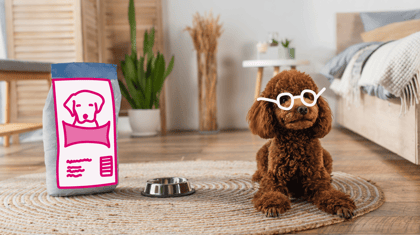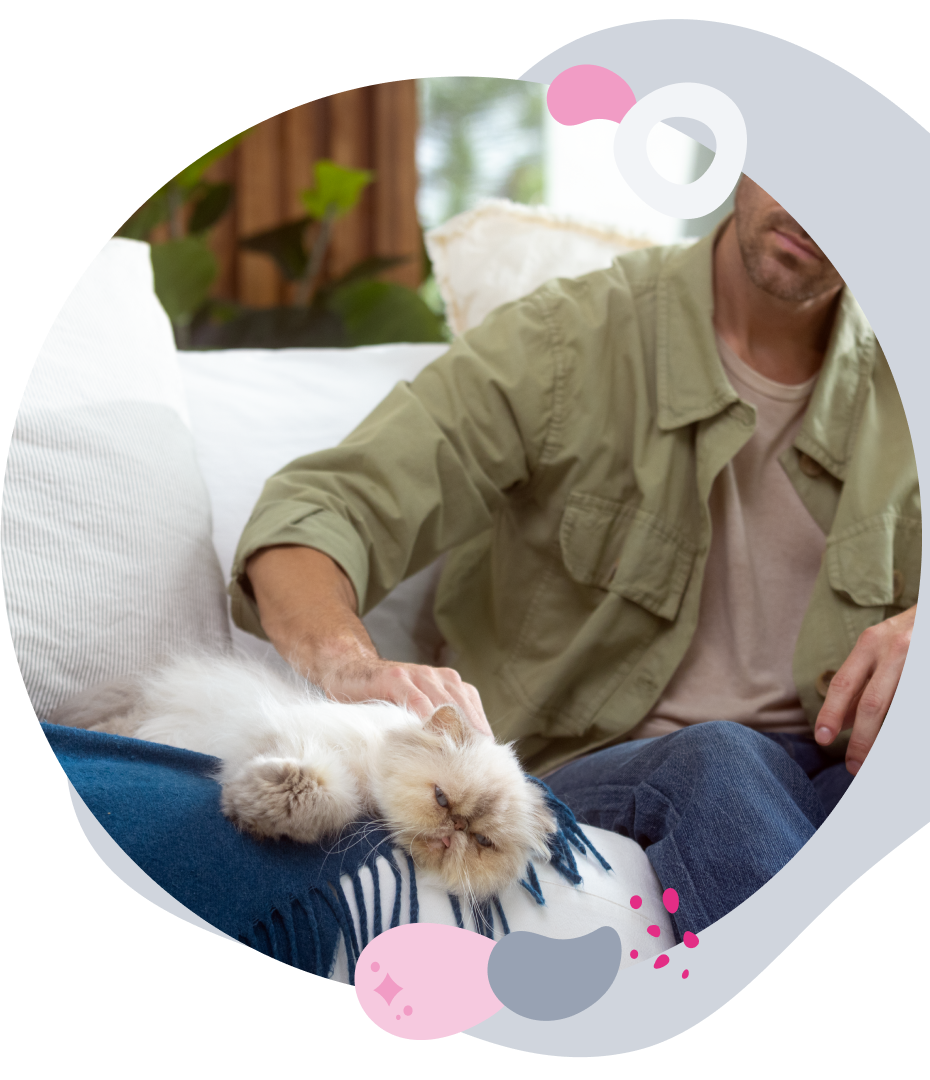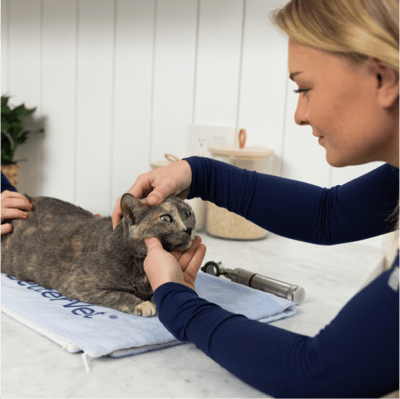
Why BetterVet?
Our mobile veterinarians examine pets in their favorite spot - a comfy couch, a cozy pet bed, or even your lap! See how we work to keep pets relaxed and happy at home.
A healthy diet can help your pet live a long, healthy life. During an in-home Wellness Exam, our veterinarians can provide nutritional guidance and create a plan to help your pet maintain an optimal weight.
Note: Your pet’s Nutrition Consultation is included in a Pet Wellness Exam at no additional charge.

Your BetterVet team is your expert source for questions and concerns about the best foods for your pet, how much to feed them, and their optimal weight.
We will gather information about your pet’s age, appetite, weight, and lifestyle. Based on this information, we'll make recommendations for your pet's nutritional needs.
Our veterinary teams provide Nutritional Consulting during an in-home Wellness Exam so your pet can stay in the relaxed environment of home.
All of our veterinarians have completed a comprehensive curriculum that includes pet nutrition and its impact on long-term health.
Nutrition counseling is an important component of our in-home Pet Wellness Exams. We allow 30-45 minutes for this appointment type to allow time for all your questions and concerns.

In addition to a thorough head-to-tail physical exam, your veterinarian will ask questions about your pet’s history, food preferences, and diet.

During the in-home visit, your veterinarian can make personalized recommendations for your pet, which may include the best foods and supplements to give your pet and how much to feed them.

Before the end of your pet’s Wellness Exam, your veterinary team will provide guidance on follow-up appointments, nutritional recommendations, and any necessary referrals.

Bettervet helped our family with informative pointers in regards to our 5 year old Lab Rosie. Doctor Scott Perry had a lot of insight to what is best for nutrition and weight management, which orthopedic procedure would be the best fit, and also advice on lifestyle changes. Our dog suffers from bilateral hip dysplasia and moderate CCL disruption. It has been a pleasure to have this company available to our resource. Thank you!
Our in-home veterinarians include nutritional counseling during your pet’s wellness exam and a discussion and review of your pet’s food intake, habits, and body condition (weight).
During your pet’s checkup, our expert veterinary team will evaluate your pet’s dietary history, current food intake, allergies, and overall health and provide recommendations tailored to your pet’s individual needs.
If you need guidance about your pet’s nutrition, we will be happy to work with you to create the best plan for your pet, considering factors like age, health, and nutritional requirements.
If your pet is overweight or underweight, your veterinarian will provide guidance on how to maintain or reach an optimal weight for your pet.
Your pet’s nutrition plan may include recommendations for dietary supplements and custom food to support your pet’s long-term health.
Nutritional consultations take place during an in-home Wellness Exam, which typically lasts between 30 and 45 minutes.
Please prepare to give your veterinary team information about your pet’s history (nutrition, food allergies, prescription medications, etc.), current diet and treats (including packaging), and any questions you would like to discuss during your appointment.
To schedule a nutrition consultation, go to our website or app and choose Wellness Exam. We have same-day and next-day appointments in many locations.
Your veterinary team will help make the best plan for your pet’s nutrition and make pet food recommendations, considering any dietary requirements, allergies, and health conditions, and provide outside referrals if necessary.
Before the end of your in-home visit, your veterinary team will set up follow-up appointments and provide any necessary referrals or prescriptions for your pet.
BetterVet doctors are not board-certified nutritionists, however all of our veterinarians have completed a comprehensive nutrition curriculum. For a board-certified veterinary nutritionist in your area as well as to access other information about pet nutrition, visit the American College of Veterinary Nutrition online.
Our veterinarians are available for follow-up visits, as well as virtual veterinary appointments should you have any questions or concerns about your pet’s nutritional plan.

Skip the traffic by booking a mobile vet visit with one of our trusted veterinarians. We bring full-service vet care to you!